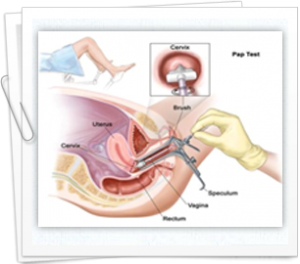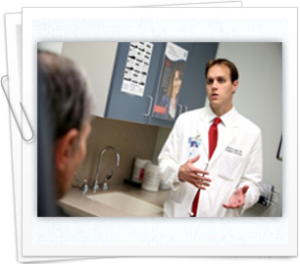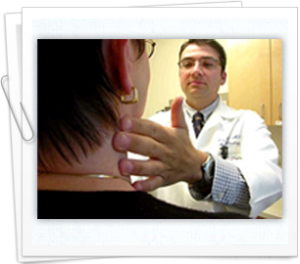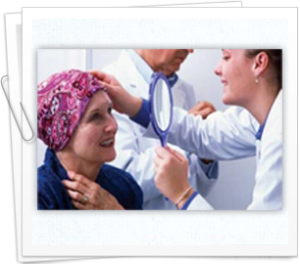Archive for September, 2014
Hysterectomy as a treatment for cervical cancer
Date: September 30th, 2014
 Cervical cancer treatment involves a wide range of different therapies depending on when the cancer is diagnosed. A hysterectomy may be involved in some instances. For a young woman who is still considering having children, this is a life saving procedure that is also potentially life changing.
Cervical cancer treatment involves a wide range of different therapies depending on when the cancer is diagnosed. A hysterectomy may be involved in some instances. For a young woman who is still considering having children, this is a life saving procedure that is also potentially life changing.
Preventing cervical cancer and your diet
Date: September 29th, 2014
 It is no longer a secret that eating a large variety of vegetables and fruits can help prevent the development of cervical cancer. HPV virus infection is the main cause for most cervical cancer cases.
It is no longer a secret that eating a large variety of vegetables and fruits can help prevent the development of cervical cancer. HPV virus infection is the main cause for most cervical cancer cases.
Causes, symptoms, diagnosis and treatment of cervical cancer
Date: September 28th, 2014
 About cervical cancer
About cervical cancer
When abnormal cells of the cervix grow and develop out of control, this results in cervical cancer. The cervix is usually the lower section of uterus which forms the opening to the vagina.
Tests and diagnosis for carcinoid tumor
Date: September 27th, 2014
 Blood tests
Blood tests
The first way of diagnosing carcinoid tumor involves undertaking blood tests to check the presence of cancerous cells. For people having a carcinoid tumor, it is possible for the blood to have some high levels of various hormones that the carcinoid tumor secrets.
Treatment and drugs and carcinoid tumor
Date: September 26th, 2014
 Besides consideration to where the carcinoid tumor is located, the treatment given will also depend on how extensive the cancer has spread to other areas, types of hormones being secreted by the tumor and your overall health as well as your own preferences.
Besides consideration to where the carcinoid tumor is located, the treatment given will also depend on how extensive the cancer has spread to other areas, types of hormones being secreted by the tumor and your overall health as well as your own preferences.
Treatment information for AIDS-Related Lymphoma
Date: September 25th, 2014
 About AIDS-Related Lymphoma
About AIDS-Related Lymphoma
The AIDS was described for the first time in 1981. The first definitions of AIDS actually included some opportunistic infections, central nervous system lymphomas and Kaposi sarcoma. The existing definition of AIDS was revised in 1987 by Center for
Useful information about Adult Non-Hodgkin Lymphoma Treatment
Date: September 24th, 2014
 NHL comprises of a group of heterogeneous lymphoproliferative malignancies that have different behavior patterns and treatment responses. NHL usually originates from lymphoid tissues just like Hodgkin lymphoma and is capable of spreading to other organs.
NHL comprises of a group of heterogeneous lymphoproliferative malignancies that have different behavior patterns and treatment responses. NHL usually originates from lymphoid tissues just like Hodgkin lymphoma and is capable of spreading to other organs.
Information about Childhood Non-Hodgkin Lymphoma Treatment
Date: September 23rd, 2014
 The epidemiology of lymphoma
The epidemiology of lymphoma
Lymphoma is rated at number three among the most common childhood malignancies. 7 percent of cancers diagnosed in children below 20 years comprise of NHL and in US, about 800 NHL cases are diagnosed yearly.
Using drug therapy to prevent breast cancer
Date: September 22nd, 2014
 Many women are always thinking about breast cancer prevention, particularly those having a high risk of getting the disease. Chemoprevention is an option available for women having numerous risk factors for breast cancer.
Many women are always thinking about breast cancer prevention, particularly those having a high risk of getting the disease. Chemoprevention is an option available for women having numerous risk factors for breast cancer.
How the fertility of women getting treatment for cancer can be saved
Date: September 21st, 2014
 When you are diagnosed with cancer, everything in life becomes very overwhelming. In most cases, options for fertility preservation are usually overlooked during doctor visits, diagnosis and when planning for the treatment. It is important you understand that most of the chemotherapies used for breast cancer treatment can seriously affect fertility.
When you are diagnosed with cancer, everything in life becomes very overwhelming. In most cases, options for fertility preservation are usually overlooked during doctor visits, diagnosis and when planning for the treatment. It is important you understand that most of the chemotherapies used for breast cancer treatment can seriously affect fertility.
For a woman who is closer to menopause, there is a high likelihood of going into menopause and staying there for good. For a 40 years old woman, there is a chance of between 50 and 60 percent of getting into permanent menopause when the treatments are availed.
